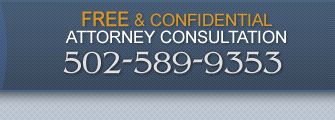CHAPTER 13 BANKRUPTCY
Chapter 13 Bankruptcy helps debtors who desire to repay creditors, but are financially unable to do so without some sort of assistance. In Chapter 13, assistance is afforded through the formulation of a repayment plan, by which the debtor repays debt over a period of 36-60 months, allowing the debtor to keep their property. Many people choose to file under Chapter 13 for this reason: a bankruptcy filed under Chapter 13 of the bankruptcy code allows a debtor to retain assets that might otherwise be liquidated in a chapter filing. The end result is a plan to repay debt at a lower rate over a certain period of time.
Who can file under Chapter 13?
Chapter 13 also provides an alternative for debtors who have too much disposable income to file under Chapter 7. However, Chapter 13 has eligibility requirements of its own.
The first requirement is that the debtor has income. This means that the debtor must have a regular source of income that can be calculated as an average monthly amount over a six month period. Income includes any money received over the previous six months minus any reasonable expenses for the maintenance of yourself and dependents. The term “reasonable” carries great importance when calculating a debtor’s income. Many debtors are surprised to learn that their “reasonable expenses” under bankruptcy law are not the same as their actual regular expenses.
Second, the debtor can file under Chapter 13 if he or she owes, on the date of filing, less than $336,900 in unsecured debt and $1,010,650 in secured debt.
How does a repayment plan work?
In a Chapter 13 Bankruptcy, the debtor develops a plan of repayment of debts has the plan approved by the court. The debtor’s monthly plan will be determined by his or her disposable income. Calculating the amount that a debtor can pay each month under the plan can be a very complicated process and requires the use of a skilled bankruptcy attorney.
The repayment plan generally lasts for 36 to 60 months. The debtor pays a specific amount per month to the Bankruptcy Trustee, who disperses the payment among the creditors.
After the plan term expires, all unsecured debts are discharged, regardless of how much the creditors have actually received. Secured debts, such as a mortgage, must be repaid in full. Prior default on these unsecured debts may be repaid under the plan so that the secured debts are brought current by the expiration of the plan term.
It is very important to remember that any missed payments may cause the dismissal of the payment plan and negate the benefits of the Chapter 13 proceeding.
Any debt dischargeable in a Chapter 7 case can be discharged in a Chapter 13 case. For more information on dischargeable debts, see our Chapter 7 Bankruptcy information page.
Louisville Bankruptcy Attorneys
If you are interested in finding out if chapter 7 bankruptcy relief is right for you, please call (502) 589-9353 or contact us online to learn about how we can help you. Our bankruptcy and debt relief lawyers proudly represent clients throughout Jefferson and surrounding counties. We are dedicated to providing cost-effective results for our clients. Your initial consultation is FREE.











